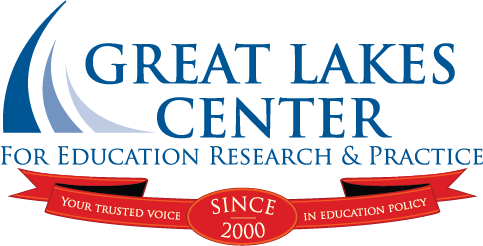
Think Twice Weekly Report
JANUARY 13, 2024 - JANUARY 19, 2024
The Think Twice Weekly Report compiles public education-related policy reports, research and articles of interest to policymakers, educators and stakeholders. This list is not exhaustive but is meant to highlight recent reports that may be used to support or undermine the work of our subscribers in supporting public schools. We encourage you to take a moment to scan these reports and determine if they may be used by policy makers to assist or erode your mission.
 Policy Reports
Policy Reports
School Reform and Restructuring / Urban Education
Source: Bellwether
Date: 1/16/2024
Changes and Challenges: How Stakeholders Can Support Chicago Public School Students in a Shifting Governance Landscape
This brief provides an overview of the changes and challenges to Chicago's public education landscape pre- to post-pandemic, drawing from desk research and interviews Bellwether conducted with more than 20 Chicago- and Illinois-based education advocacy and civic organizations and funders. It also provides student-centered recommendations that serve as a road map to 1) create consensus and collaboration, 2) elevate community voices, and 3) build an informed electorate.
Reading Instruction
Source: NCTQ
Date: 1/16/2024
State of the States 2024: Five Policy Actions to Strengthen Implementation of the Science of Reading
For states to succeed in their efforts to improve reading instruction, they must ensure teachers are prepared to implement and sustain scientifically based reading instruction. New data and analysis from the National Council on Teacher Quality (NCTQ) show that while many states seek to improve literacy outcomes for students, they overlook a key component to implementation and sustainability: effective teachers.The report shows the extent to which states focus on 5 key policies.
Reading Instruction
Source: NCTQ
Date: 1/16/2024
How States Can Implement and Sustain Strong Reading Instruction
For states to succeed in their efforts to improve reading instruction, they must ensure teachers are prepared to implement and sustain scientifically based reading instruction.The states most successful in leveraging policy to improve reading outcomes for students have taken a cohesive and comprehensive approach focused on improving teachers' capacity to deliver great reading instruction.This action guide outlines five key actions states should take to strengthen implementation of reading policies.
 Reports Reviewed
Reports Reviewed
GLC seeks to ensure that policy briefs impacting education reform are based on sound, credible academic research. Below are reviews conducted with GLC support.
The Cost-Effectiveness of Wisconsin's Private School Choice Programs
Source: School Choice Wisconsin
Reviewed by: Stephen Kotok, St. John's University
A recent report from School Choice Wisconsin claims that Wisconsin's voucher programs are highly "productive," achieving better academic outcomes at lower costs than public schools. A closer examination, however, calls into question the validity of these assertions. Stephen Kotok of St. John's University reviewed The Cost-Effectiveness of Wisconsin's Private School Choice Programs, and identified substantial methodological shortcomings that undermine its conclusions, including reliance on biased comparisons and limited financial accounting.
 What We're Reading
What We're Reading
Research and articles that we want to highlight for subscribers as potential resources:
Early Grade Literacy: Is Third Grade Retention Effective?
By: Matt Weyer and Erin Whinnery, EdNote
Over the past three decades, research regarding grade retention has been mixed. A few studies point to positive effects in the short run, but most studies indicate that benefits fade over time when not paired with significant academic interventions. Studies also highlight how retention disproportionately affects students of color.
New NC law on parents and schools begins shaky rollout. Opponents and supporters aren't happy
By: Emily Walkenhorst , WRAL
A controversial North Carolina law designed to expand information available to parents of public school students has been in effect since early January. But interpretations of the law by schools and educators across the state have frustrated supporters and opponents of the law, which requires schools to disclose students' requests to go by a different name or pronoun, among other things.
White House, Ed Dept call for ‘bold actions' to improve student achievement
By: Kara Arundel, K-12Dive
Attendance, high-dosage tutoring and expanded learning time are areas of focus emphasized by the Biden administration.
Education commissioner says voucher students fared poorly on state test
By: Sam Stockard, News Fom The States
Tennessee's education chief admits students using public money to attend private schools haven't performed well on achievement tests, raising questions about whether the state should start another voucher program.
Education set to be a prime focus of state lawmakers this year
By: Lexi Lonas, The Hill
The year is expected to bring fresh conversations on how artificial intelligence (AI) use in the classroom should be legislated, as well as debate on matters such as school choice and how to teach subjects including reading.
